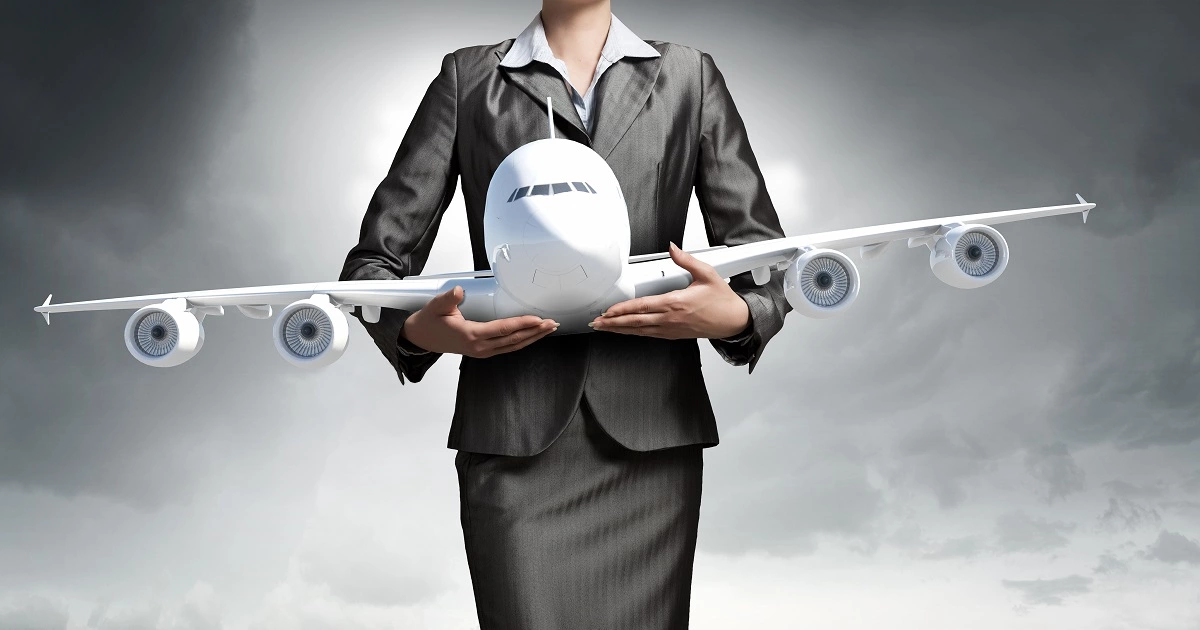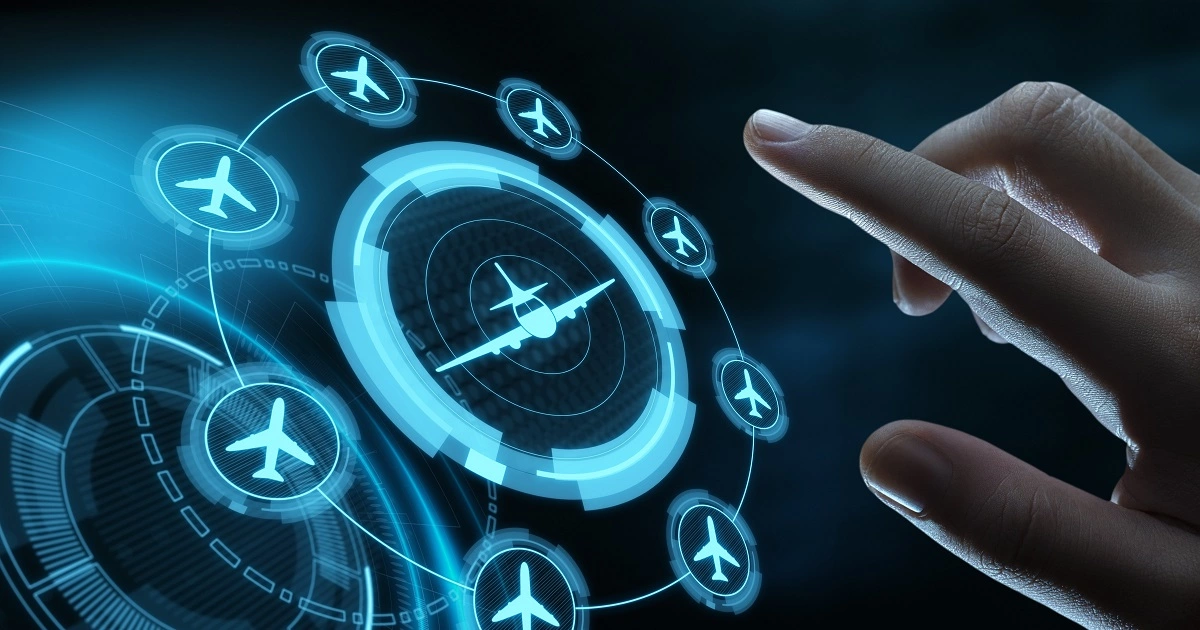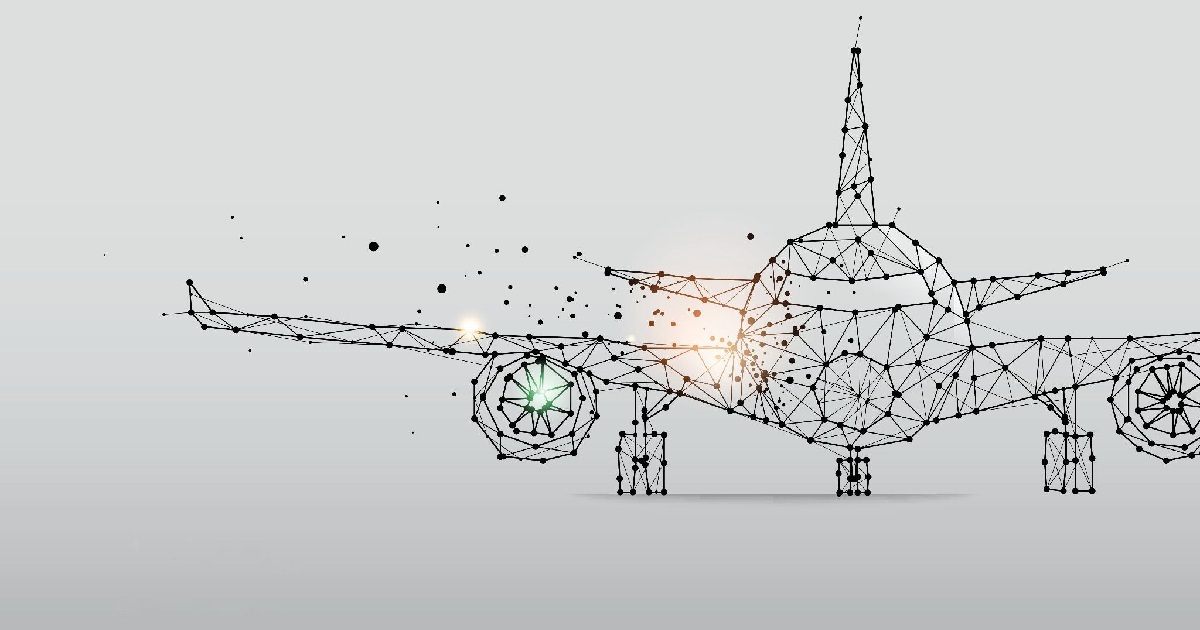
Air Transport
Article | July 26, 2022
Flying is changing, and so is the future of piloting. With technological advancements across the aviation industry, one can only anticipate what’s in store for the future of piloting. The battle between automation and learning skills that automation can easily take over is coming to a head. As airplane engineering matures, the aviation industry isn’t far from seeing a day when pilots who have undergone training on electric trainers require a license endorsement to fly a piston-powered aircraft.
Goodbye, Manual Flying
Airplanes are becoming downright easier to fly. Consider how most pilots today would never be able to fly the aircraft that their seniors trained in. According to experts, piloting skills will put more emphasis on the efficient use of airspace systems instead of directing and maneuvering the aircraft.
Decoding Airplane Information
Traditionally, a pilot’s primary task was to gather and decode the information he received through the aircraft’s systems. This information was then used to give the pilot an “air picture” which allowed him to get a sense of the air traffic, airspace, and weather. As aircraft technology improves, pilots will no longer need to know how to do this. Instead, the "air picture" will be shown on a screen in front of them.
Final Word
From augmented reality to 3D spatial audio cues, augmentation is happening to aircraft as well as the pilot’s ability to fly them. The evolution of aviation technology will only help transform the mechanics of airplanes, and pilots will no longer need to handle flight control. As augmented reality takes over, future cockpits might not even need to be at the front of the aircraft or have windows. That would be the true test of the future of piloting.
Read More

Business Aviation
Article | January 7, 2022
A New System That Aims to Create Carbon-Neutral Aviation
Scientists have achieved an amazing breakthrough in the development of carbon-neutral fuel for the aviation industry. An aviation fuel production system that uses water, sunlight, and carbon dioxide has been put into action. Its design was published on July 20th, 2022, in the journal Joule. The dream of achieving carbon-free aviation could become a reality with this development.
“We are the first to demonstrate the entire thermochemical process chain from water and CO2 to kerosene in a fully-integrated solar tower system.” - Aldo Steinfeld, Professor, Study Corresponding Author, ETH Zurich
The aviation industry accounts for approximately 5% of the global anthropogenic emissions that contribute to global climate change. The industry heavily relies on kerosene, commonly known as jet fuel, a liquid hydrocarbon fuel derived from crude oil. There are no clean options to power commercial flights on a global scale at the moment.
Production of Synthetic Kerosene
This breakthrough, with the help of solar energy, makes it possible to produce synthetic kerosene from water and carbon dioxide instead of crude oil. The amount of CO2 emitted during kerosene combustion in a jet engine equals what is consumed during its production in the solar plant. It is what makes the fuel carbon neutral, especially if the CO2 in the air is captured and directly used as an ingredient, which could be possible in the near future.
As part of the European Union's SUN-to-LIQUID project, Steinfeld and his colleagues put forward a system that uses solar power to generate drop-in fuels—synthetic alternatives to fossil-derived fuels like kerosene and diesel. Solar-produced kerosene is consistent with the current aviation infrastructure for allocation, fuel storage, and use in jet engines. It can also combine with fossil-derived kerosene, according to Steinfeld.
High Hopes for the Future
Steinfeld and his team began scaling the construction of a solar fuel manufacturing plant at the IMDEA Energy Institute in Spain half a decade ago. The plant has 169 sun-tracking reflective panels that redirect and concentrate solar radiation into a tower-mounted solar reactor. This concentrated solar energy then powers redox reaction cycles in the reactor’s porous ceria structure, which is not absorbed but can be reused. It transforms the water and carbon dioxide into syngas, a customized mixture of hydrogen and carbon monoxide. This syngas is then injected into a gas-to-liquid converter and is finally converted into liquid hydrocarbon fuels such as kerosene and diesel. Steinfeld and his team are working on amping up the reactor’s efficiency from the current 4% to more than 15%.
Read More

Air Transport
Article | July 6, 2022
Is the aviation industry finally reviving after the devastating 2020? If yes, then what will it show in the next five years?
2020 will be remembered in airline history as the most turbulent year to date. Due to the pandemic, the period brought massive changes in the airline industry—business models and customer behavior globally. As a result, regaining customer confidence and reforming business models have become a critical factor for airlines to uncloud the economic storm and remain a formidable competitor in the years of uncertainty ahead.
Technologies that were being used before the pandemic are now being studied well with vividness. The inclusion of new technologies is onboarding, which somehow sets up new aviation industry trends. These will be a timely solution to fight the ongoing economic instability and challenges pouring in.
To increase safety notions, boost business confidence, customer trust, and making airline operations more efficient, adaptability and high intelligent business outline is the new blueprint for survival and growth to happen in the next five years.
Drivers of Emerging Trends
The intention of emerging trends in the airline industry is from weak signals from a wide range of fields, including threats, technology, and potentiality to function remotely, impacting the industry’s all-over operational dynamics.
The trends are setting primarily due to the winds of change pounding the industry from different directions. Be it from technological, demographical to environmental shifts. Understanding the potential business landscape is therefore critical to ensure what the future of air travel will be.
During a study conducted by IATA, business leaders in the airline industry identified the most critical drivers of emerging trends that were probable to have an influential impact by 2035. Also, these drivers suggest bringing more and more opportunities in business models and operational models of the industry beyond 2020.
Therefore, it is the hope of all airline companies (you) that how you will be affected by future developments and how the entire business landscape will be changed by the trends discussed here. So, take advantage of the opportunities that some of these trends may give rise to.
Leading Aviation Trends to Expect
Cybersecurity
Today, the importance of cybersecurity technology in the airline industry is rising. Airlines, now being aware of the downsides of using traditional operational models, is becoming more concerned about delivering high-performance using technology.
With having well-operated cybersecurity functionality onboard, airlines are focusing on becoming more agile to scale their infrastructure. Also, in the next five years, increased connectivity between the real and virtual world, including robots, will eventually end the boundaries between virtual and physical security.
IATA’s research with the London School of Economics found that the aviation industry will invest $15 billion by 2035, thanks to connected operations.
Moreover, as cybersecurity matures, it will be seen as the most secure and scalable way of operating organizational data, and processing will be easier than before. You will have your airline documents within a secured centralized database, which will reduce silos of information that pose security risks and threats.
Biometric Technology
The pandemic, apart from bringing challenges, has helped businesses to leverage influential ideas to foster. Yes, it has made the airline industry emphasize the high usage of biometrics as a must-have technology stack. Biometrics is on the rise that can reinforce the idea of touchless operations in airports.
The airline industry forecast has laid primary focus on self-service. However, as the blend of software and technology is more in demand, applications will be more defined than before in the coming five years. The technology will allow automated checks, self-service systems using devices like mobile, tablets, and others and cover iris, face recognition, fingerprint, which will even work with PPE masks.
The industry is already making great experiences that allow businesses to conduct frictionless operations using biometric software and hardware. For example, in November 2020, Star Alliance introduced a novel interoperable biometric identity scanner platform for screening employees and passengers at airports.
AI & Big Data
Artificial Intelligence (AI) welcomed massive opportunities in transforming aviation business operations amid the ongoing crisis. This technology in the airline industry has immensely aided companies in collecting data and forming a virtual assistance environment for queries, enhanced logistics operation, security, and self-services with highly augmented reality.
A market survey reveals that 97.2% of the aviation companies are installing big data and AI together. In fact, 76.5% of airline companies are gaining the value of data collection with the help of big data and AI. Source: resources.vistair.com
AI is also being set up in terms of safety improvement initiatives and potential safety issues. In this case, Southwest Airlines partnered with NASA to build an automated system capable of preventing potential threats and breaches by using machine-learning algorithms.
Green Technology
Green technology is one of the upcoming trends in the airline industry in the next five years. The prediction is it will make novel changes in the airline industry from various directions like the workforce, shares, stakeholders, and governments.
In the green tech concept, it is the generational shift and advancement that may head the change using new tools. These would bring in notable opportunities beyond 2021.
If you observe, the pandemic has driven the agenda of sustainability in terms of climatic conditions. And you will be surprised to know that aviation has already put up a serious concern in its fossil fuel usage by 2035. Even aircraft manufacturers have begun their journey with green technology.
To clarify this, the main objective of sustainable development for the coming years is decarbonization and green technology investment.
Aviation companies like Japan Airlines and IAG are investing to bring net-zero carbon emissions by 2050, and by 2045, they aim to achieve carbon neutrality. And these, of course, are happening quickly due to digitalization.
Expecting a Sustainable ‘DIGI-TECH’ Future
As the pandemic brought downturn and slowdown in the airline industry, they have prioritized investing in digital by recognizing its importance and the optimum necessity. It is because it will be one of the significant ways for you to bring customers back and show your potential to endeavor services in a changing industry landscape.
So, technology and digital together must be supported that respects businesses’ need to invest in multiple areas of functionality. On the other side, revenue management goals also need to be focused on to gain success among competitors. And following the path of trending digital platforms will make you victorious over revenue management performance objectives. In this way, you will be in the skin of the game and would observe your company rising through the challenges over the coming years.
Frequently Asked Questions
What are the topmost technologies that will define aviation beyond 2021?
The technologies—3D printing in manufacturing, automation, and robotics are the topmost that will define how the aviation industry will be beyond 2021.
How is technology being used in aviation?
Airline operators use technology to market their services and products, advancing their software to leverage functionalities like biometrics, automation, cybersecurity, AI, big data, and more. Also, technology is being used to make safer airport operations like touchless checks to make safe for passengers.
Will the aviation industry overcome challenges?
Up until now, globally, the aviation industry is maintaining positive growth, despite prevailing challenges due to COVID-19. Technologically, it seems that the industry will foster slowly and gradually. Yet, there is sluggish growth economically due to high jet fuel prices.
{
"@context": "https://schema.org",
"@type": "FAQPage",
"mainEntity": [{
"@type": "Question",
"name": "What are the topmost technologies that will define aviation beyond 2021?",
"acceptedAnswer": {
"@type": "Answer",
"text": "The technologies—3D printing in manufacturing, automation, and robotics are the topmost that will define how the aviation industry will be beyond 2021."
}
},{
"@type": "Question",
"name": "How is technology being used in aviation?",
"acceptedAnswer": {
"@type": "Answer",
"text": "Airline operators use technology to market their services and products, advancing their software to leverage functionalities like biometrics, automation, cybersecurity, AI, big data, and more. Also, technology is being used to make safer airport operations like touchless checks to make safe for passengers."
}
},{
"@type": "Question",
"name": "Will the aviation industry overcome challenges?",
"acceptedAnswer": {
"@type": "Answer",
"text": "Up until now, globally, the aviation industry is maintaining positive growth, despite prevailing challenges due to COVID-19. Technologically, it seems that the industry will foster slowly and gradually. Yet, there is sluggish growth economically due to high jet fuel prices."
}
}]
}
Read More

Business Aviation
Article | August 26, 2021
As 2021 is a few months away from its end and is the beginning of a new year, it is hopeful that it will bring more positiveness for airline businesses. But what the industry has ahead? How will the new landscape of technology strategies in airline businesses look?
Or say, what will be the platforms for novel technology strategies in the aviation industry in the future?
Let’s have a quick read in the next!
What Airline Technology Strategies Will Look Like?
As you know, the airline industry saw a lot of disruption in 2020. But the circumstance also paved the way for promising and powerful new technologies.
Airline businesses are now turning the tech trends to their advantage. In this way, they can get a handful of opportunities to streamline operations. They could do this because the landscape of technologies is reshaping aviation.
For example, IATA recently calculated that the airline's revenue worldwidewould be more than half of what it was in 2019. That means the industry will witness a massive change due to emerging tech stacks. Its rising importance is influencing market leaders to make more informed decisions today. This is why it is critical to imply technology strategies in your business.
Thus, the focus is on the clients' strategic choices and investments. It will now depend on the implications of technology strategies.
How will some of the applied proactive technologies in business processes look like in the new normal?
This blog groups some of the newer technologies for the new normal in aviation. Explore them and take inspiration from the potential of technologies to revive your business and drive growth.
5 Tech Strategies to Reshape Airline Industry
Machine Learning with AI
Before the pandemic, the airline industry displayed an exceptional commitment to the potential of AI. Like, you must have seen the adoption of chatbots to communicate and other ways to improve operations.
Now, the usage of AI is soared, and its application is more profitable than before. The platform analyses a faster deployment of millions of operational data.
Mechanization
Mechanization technology in the airline industry is gaining thrust. Due to the rapid developments and advancements, several airline businesses are implementing it. As tools are becoming smarter, businesses will soon have completely automated operations. Automation will ease all the workloads, reduce manual intervention and errors to a high accuracy rate.
Real-Time Information Technology
Real-time information technology is a significant technological aviation strategy. It has the potential of improving airlines’ operation efficiency with the help of customized software usage.
Your business can drive growth by implementing custom software applications. But, as you know, to deliver customized and personalized solutions, it is essential to understand clients’ expectations and preferences. So, how is this technology going to take you through it? Let’s understand in the following ways:
Personalized solution: Custom software applications are developed with the help of the updated information collected by knowing customer’s preferences. In this way, you can create personalized or customized solutions for your clients.
Technical Excellence: Having an expert development team across all application stages is a plus in your business. The cutting-edge tools will benefit from fulfilling clients’ demands
Higher business value realization: It's critical to properly align real-time information technology with your business processes. This will deliver solutions on time with the right approach to your client. This way, your business can generate higher value and build trust in long-term relationships with clients.
Analytics
Analytics is the most urgent technological need for airline businesses in the future. Aacquiringe accurate data, predicting losses, and evaluating clients’ needs will be the next transformational scenario in the airline industry.
Implementing this technology will allow airlines to streamline their operations ahead of time. It will also help to take realistic measures to bring down losses that occurred due to the pandemic.
Analytics are also effective in predicting and preparing for the results of business efforts. Data-backed analytics would provide insights to pinpoint geo-specific interventions to gain higher ROI.
Agility
The implementation of technology strategies has encouraged airline businesses to become agile. At the same time, some leading industry market players have now shifted their business to operate in agility. So, it's expected that this trend will continue beyond 2021.
The aviation industry caters to a vast array of products and services. It works to deliver seamless operations and services. The adaptation of agility requires multiple systems to interact and exchange data. So, with the growing rate of partnerships, agility is the need of the hour.
Today, in several airline businesses, teams work in separate locations. Being agile helps them to win adverse circumstances. It also builds the trust of audiences by keeping transparency in work and responding to queries faster.
With this, the emerging technology is also expected to help track the progress of smaller efforts and proactively handle the metrics for projects coming in. In addition, the technology ensures that you can constantly inspect functions and deliver quality products or services.
Lastly, since the budget is one of the top concerns of airline businesses, the development of agile technology strategies helps to keep a check on expenses. Therefore, by tracking the expenditure, it will be easier to plan future budgets adequately.
Frequently Asked Questions
What are other critical new technologies that will transform aviation?
According to IATA’s report, the aviation industry will witness a drastic transformation. Some important new technologies such as cybersecurity, 3D printing in manufacturing, robotics, and biometrics will enter in the future.
How has technology enhanced the aviation industry?
Technology has enhanced aviation in manufacturing. New techniques have created new aircraft with improved fuel consumption and reduced environmental impact. In terms of operation, automation and AI are the new takeovers in aviation.
Why is technological development important for aviation?
Technological development is important to improve the efficiency of airline operations. The need for better connectivity, enhanced travel experience, reduced fuel costs, budget alignment, control over expenses has urged technology to step in.
{
"@context": "https://schema.org",
"@type": "FAQPage",
"mainEntity": [{
"@type": "Question",
"name": "What are other critical new technologies that will transform aviation?",
"acceptedAnswer": {
"@type": "Answer",
"text": "According to IATA’s report, the aviation industry will witness a drastic transformation. Some important new technologies such as cybersecurity, 3D printing in manufacturing, robotics, and biometrics will enter in the future."
}
},{
"@type": "Question",
"name": "How has technology enhanced the aviation industry?",
"acceptedAnswer": {
"@type": "Answer",
"text": "Technology has enhanced aviation in manufacturing. New techniques have created new aircraft with improved fuel consumption and reduced environmental impact. In terms of operation, automation and AI are the new takeovers in aviation."
}
},{
"@type": "Question",
"name": "Why is technological development important for aviation?",
"acceptedAnswer": {
"@type": "Answer",
"text": "Technological development is important to improve the efficiency of airline operations. The need for better connectivity, enhanced travel experience, reduced fuel costs, budget alignment, control over expenses has urged technology to step in."
}
}]
}
Read More